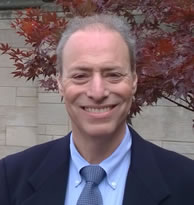I think every doctor has several patients that are etched into his memory. One such patient was Dr. G. He was a doctor, the same age that I was, and he had cancer. Cancer pain is different from other pains. Few other diseases grab young, healthy people, and so quickly force them to face their own mortality. Even fewer diseases so consume patient and family in a (possibly prolonged) battle to survive, and evoke such fear of not just death, but a painful death.
The Myth about Cancer Pain
The fact is most cancer patients never suffer with significant pain. There is a myth that cancer means pain. This is usually not the case, but unfortunately, Dr. G. was not so lucky--he was struggling with ongoing pain.
Since cancer occurs in so many different forms and areas of the body, there is no such thing as typical cancer pain. The pain can be nociceptive�related to tissue damage; or can be neuropathic�related to compression or infiltration of nerves. (See our previous update for more information about nociceptive and neuropathic pain.) Frequently, the pain is a combination of both. There may be constant pain, and there may be bouts of brief, intense pain. Sometimes the latter is associated with certain movements or activities. Dr. G. experienced constant burning and gnawing pain in the upper abdomen, and he also suffered with 10-30 minutes of intense pain after eating. This was contributing to his dangerous weight loss and lack of energy.
Dr. G. told me that he knew he was dying. He was struggling to fight off depression and hopelessness. He said, �I�m more afraid of this pain than of dying.� Unfortunately, I�ve heard this from many patients. As we discussed his problems, it became clear that when Dr. G. experienced any increase of his pain, he would become extremely anxious and would focus all his attention on the pain. He would have thoughts of tumors growing and infiltrating or even rupturing his organs. He and I both realized that this anxiety was making his pain worse. The pain was also contributing to nausea and shortness of breath. If we could decrease Dr. G.�s pain we would be helping to decrease his anxiety, depression, weight loss, lack of energy, nausea, and shortness of breath.
There is No Single Treatment for Cancer Pain
We ended up providing Dr. G. with a variety of treatments. Nerve blocks helped reduce the constant pain, but were not very helpful with the episodic pain. A trial of a spinal morphine infusion also failed to control the episodic pain. Fortunately, we found that sub-lingual and buccal (under the tongue and in the cheek) opioids were very effective in providing rapid relief when the episodic pain occurred.
After several months, the pain intensity increased and we switched to a home PCA (patient controlled analgesia) pump, which Dr. G. found to be very effective. Every time he pressed a button, the PCA pump delivered a dose of medication into an intravenous line. Additional relief was obtained by using oral medications for the components of neuropathic pain. In Dr. G.�s case we used gabapentin. At times, I also prescribed Ritalin to help increase Dr. G.�s energy, and to help counteract the sedation from his other medications.
Another important part of the treatment was psychological. A pain psychologist worked with Dr. G., to help him diminish the anxiety that came with and exacerbated the pain. In my own visits, I made an effort to be open to discuss any problems that were troubling him. Usually, the discussions were about his symptoms, and I tried to convey the impression that there was something that we could do about almost any symptom. Occasionally, Dr. G. didn�t want to talk about his body, but instead would talk about his family, what he wanted to do with his remaining time, and the legacy that he wanted to leave. He was a religious man, and sometimes we would talk about faith in God even when God�s plan is not clear. I remember these discussions better than our medical discussions�they felt like Dr. G.�s gifts to me.
He knew that his legacy would be the impact he made on the many people who loved him�foremost his family and friends, but also his patients and students. Until the end, he focused his attention on others, not himself, and greatly influenced all of them.
After nearly a year and a half, Dr. G. lost his battle with cancer. It was not a pain-free battle, but pain did become a minor enemy rather than the focus of the battle. A year later, I ran into Dr. G.�s brother, who thanked me for having helped his brother to maintain quality time with his family and children. He assured me that in the end, his brother died peacefully.
Until next time...Steven Richeimer, M.D.
Dr. Steven Richeimer is the Director of the University of Southern California Pain Center. He has triple board certifications in Psychiatry, Anesthesiology, and Pain Management.
See Dr. Steven Richeimer's Profile on Experts.com.
©Copyright 2002 - All Rights Reserved
DO NOT REPRODUCE WITHOUT WRITTEN PERMISSION BY AUTHOR.
The information on this internet site is not intended to be a substitute for professional medical advice. You should not use this information to diagnose or treat a health problem or disease without consulting with a qualified healthcare provider. Please consult your healthcare provider with any questions or concerns you may have regarding your condition. Helpforpain.com and the University of Southern California may provide links to other organizations as a service to the users of this website. The University of Southern California and helpforpain.com are not responsible for the information provided in any other website.










